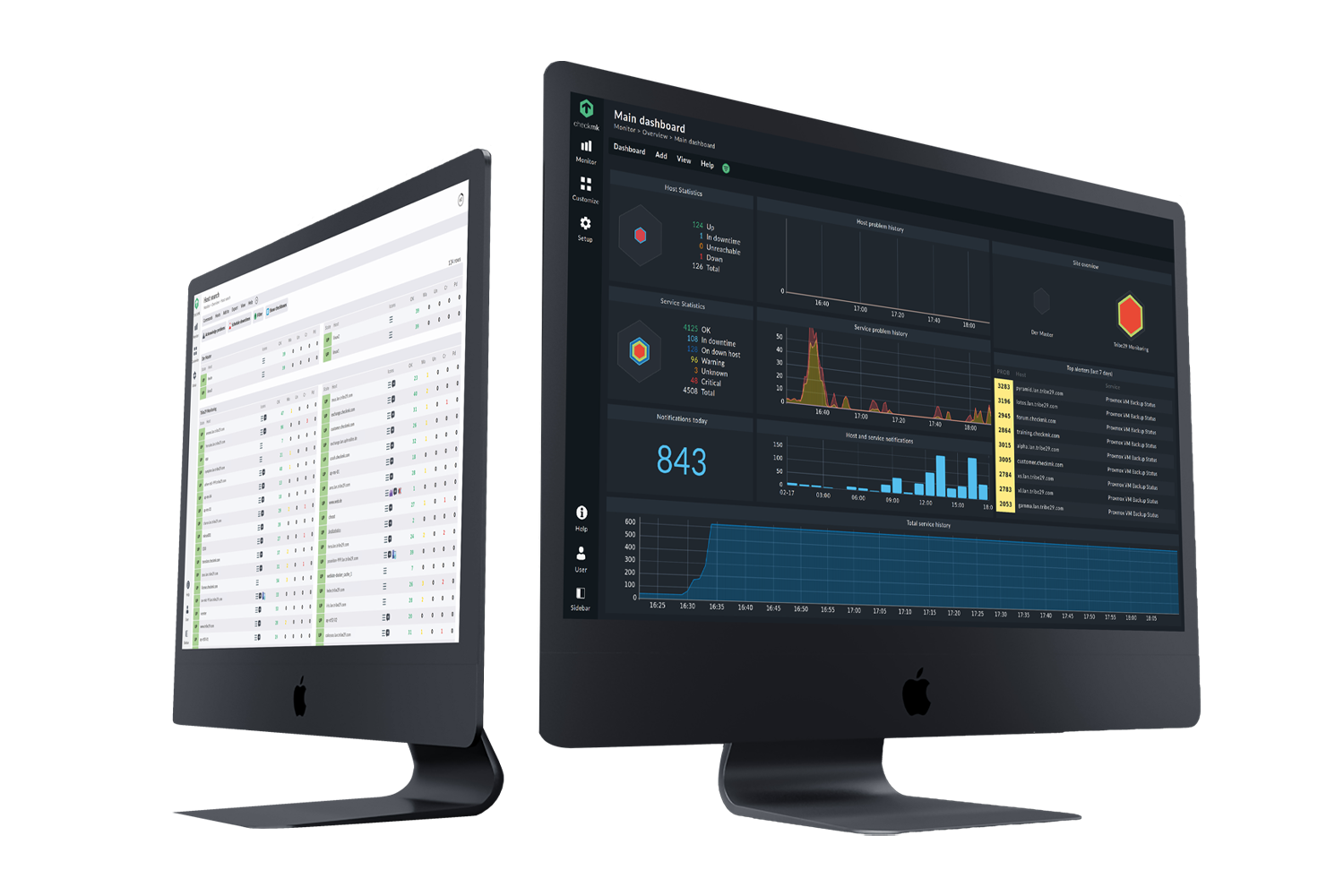
Dear reader
We are pleased that you have found Checkmk.
As a monitoring software, Checkmk provides comprehensive and specialized solutions for dealing with the very diverse environments within IT infrastructures. This inevitably requires a very comprehensive documentation which goes beyond the mere description of the obvious. Our User Guide will help you as much as possible to better understand Checkmk, to implement solutions for your requirements with Checkmk, as well as helping you to learn new approaches to solving problems.
To make the handling of Checkmk as easy as possible, the articles in this User Guide follow rather unusual approaches in many places. It is almost never a matter of simply following a prefabricated sequence of individual steps. Rather, it is intended to give you, the reader, a deeper understanding of a feature in Checkmk.
To briefly summarize, our most important intention is that the User Guide should be helpful. And it is most helpful when you can make use of our descriptions as blueprints for implementation and for solving problems in your own environment. Read more…
New to Checkmk?
There is a first time for everything, even with Checkmk. Since you will be exposed to a large number of options and functions, it can sometimes be difficult to determine the right steps on this journey.
Nevertheless, to make sure you can start your first Checkmk monitoring quickly and easily, we have written a Beginner's Guide. This will give you a compact step-by-step introduction to Checkmk, and it is structured in such a way that you can read it quickly from beginning to end and get started with Checkmk right away. Therefore, it is short and concise and does not dwell on unnecessary details. By the end of the Beginner's Guide you will have a functional Checkmk system.
Featured Topic: Checkmk 2.4.0
Checkmk 2.4.0 contains exciting new features, but also many detailed improvements. The most obvious usability improvement is the complete overhaul of the notification system. Piggyback can now be used across site boundaries thanks to an additional message broker component. An OpenTelemetry Collector has been integrated into Checkmk Cloud for the first time as a technical preview.

Updating Checkmk and using multiple instances
Checkmk 2.4.0 - the highlights

Checkmk 2.4.0 contains exciting new features, but also many detailed improvements. Read here how you can benefit from the new features.
New structures for notifications
We have fundamentally redesigned and improved the notifications section. From version 2.4.0, a new overview page provides you with an overview of the most important core data and direct access to all relevant rule sets. At the same time, we have also completely revised the setup of the notification rules. A "Guided mode" now guides you step-by-step through the creation and checking of your notification rules, making your work easier.
Dynamic host management
With the new release of Checkmk, the dynamic host management has been fundamentally reorganized. The new architecture separates the collection of information from its further processing. This ensures that all data is collected quickly and completely, even in large and highly dynamic environments, and then processed stably and securely.
Distributing piggyback data
In addition to the complete revision of the dynamic host management, from Checkmk 2.4.0 you can now freely choose on which instance piggyback data should be processed. This allows you to collect data on remote instance A and then forward it to any other remote instance – for example via a peer-to-peer connection – and have the dynamic host management generate the corresponding hosts there.
OpenTelemetry
In Checkmk 2.4.0 you can receive OpenTelemetry metrics in Checkmk Cloud and Checkmk MSP and process them in the monitoring. Checkmk comes with an OpenTelemetry collector for this purpose. This supports the gRPC and HTTP(S) transport protocols as a receiver. It can also collect data from Prometheus endpoints as a scraper. Based on the OpenTelemetry services recognized, hosts can be created automatically with the dynamic host management. These hosts are then assigned OpenTelemetry metrics as Checkmk services by a special agent. The OpenTelemetry integration still has the status of a technical preview, i.e. it will undergo major changes over time.
User guide articles
More information on the topic
Most visited
Recently added
- Monitoring OpenTelemetry metrics
- Personal notification rules
- Unprivileged execution of the Linux agent
- Setting up notifications by rules
